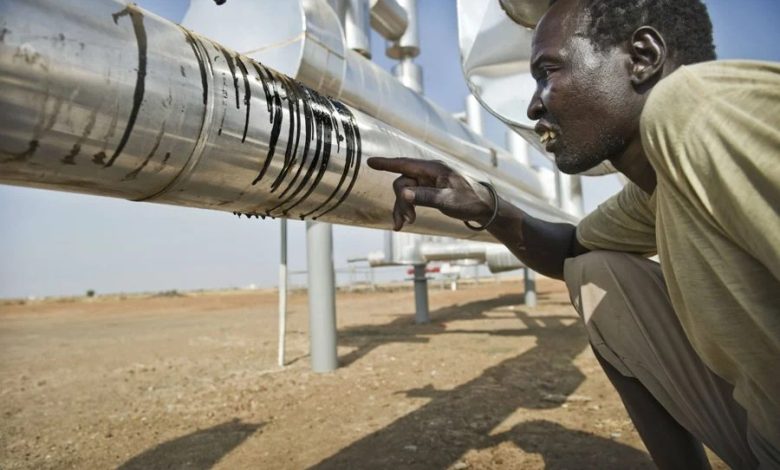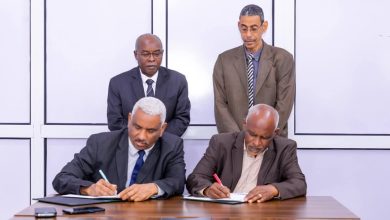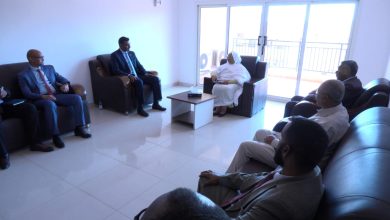Economic
Establishing an Alternative Oil Pipeline for South Sudan: Maneuverings by Key Players

Report by: Rehab Abdullah
A reliable oil source has revealed that South Sudan is seeking an alternative pipeline route to Sudan’s pipeline due to the ongoing war that started in mid-April last year.
Alternative Pipeline Options
The source told Al-Ahdath that South Sudan is considering several options for transporting its oil, including a route through Djibouti port and establishing a pipeline with the China National Petroleum Corporation. The reasoning behind this is that reliance on the current pipeline hampers the country’s exports, which are a significant source of revenue. The source added that South Sudan has also been exploring the possibility of connecting its pipeline to Kenya’s for years.
South Sudan has been transporting about 150,000 barrels of crude oil per day through Sudan for export under an agreement following its independence from Khartoum in 2011.
Current Situation
Oil production in South Sudan has nearly halted due to the disruption of one of the two export pipelines after an explosion in a section located inside neighboring Sudan, which is engulfed in war. In March, a state of force majeure was declared, as engineers were unable to carry out repairs due to the conflict.
However, statements from President Salva Kiir’s office, following a meeting in Juba between Kiir and Sudan’s Sovereign Council Chairman Abdel Fattah al-Burhan, indicated that “Sudanese engineers have completed the necessary technical preparations to resume oil production.” They reported progress toward resuming the flow of locally produced crude oil through Sudan using the same pipeline.
A Recurring Topic
Former Minister of Oil Isaac Adam Jammah stated that this is an old but recurring topic. He explained to Al-Ahdath that it seems that South Sudanese elites, particularly those in power or with influence, tend to propose alternative routes for transporting their oil whenever new political developments arise that affect the relationship between the two countries. He pointed out that his observations are based on both factual and technical matters.
He explained that the South Sudanese inherited the oil infrastructure after the North had made great efforts during the exploration phase, with the help of American companies, and extraction, which was funded and managed by Chinese and Asian companies. The oil fell into their hands like an inheritance without any effort. As a result, they haven’t put in significant work, and every time new developments arise, they maneuver in ways that have a negative impact on Sudan, unaware that these effects are even more detrimental to South Sudan.
He cited an example of when South Sudan attacked the Heglig area (blocks 4, 2, 1), damaging key infrastructure, especially the power station and some oil wells. Sudan was able to restart its portion of the infrastructure, but South Sudan’s wells, particularly the Unity Field, one of their largest, remain non-operational due to infrastructure damage caused by them.
When negotiating transit fees post-independence, and while oil prices were over $100 per barrel, South Sudan rejected a proposal to make transit fees a percentage of the oil’s value. Instead, a fixed price of $25 per barrel, including transport and other fees, was agreed upon. When oil prices suddenly dropped from $100 to $40 per barrel, with Dar oil trading at $7 below the global price, the net price for Dar was $30 per barrel, while transit fees remained $25. As a result, these settlements remain unresolved. Isaac attributed this to a lack of understanding of simple accounting principles.
Just Maneuvering
Isaac Jammah also addressed the idea of building an alternative pipeline through Djibouti. He explained that while this is technically possible, it raises several economic feasibility questions, such as how to secure the necessary funding and manage such a pipeline. Djibouti is located west of Bab al-Mandab, and the pipeline would need to cover around 2,500 kilometers from South Sudan’s oil fields in Paloch. The route would be in the opposite direction of the natural gradient toward the Mediterranean Sea, which helps reduce pumping costs. Additionally, the Bab al-Mandab area is currently a hotspot for global conflicts and interventions, and ships passing through this area pay additional war risk fees. The pipeline would also have to cross the Ethiopian plateau, which rises over 3,000 meters above sea level.
He added that current oil production in South Sudan is less than 100,000 barrels per day, compared to over 350,000 barrels per day at independence. This raises questions about the feasibility of constructing such a long and costly pipeline, and how South Sudan would repay the associated debts, given that the country is also involved in Sudan’s war. South Sudan has been accused of receiving funds to support rebels and training technicians to manage remote systems. Furthermore, some clients were captured, and significant amounts of citizens’ property were looted with the help of South Sudanese residents in Khartoum at the start of the war. These looted goods have been seen in various southern cities, with authorities turning a blind eye or being directly involved.
The Facts
Isaac concluded that the idea of finding another route for oil transport is not a serious option but rather a media maneuver without a full understanding of the realities on the ground. He added that Sudan’s government is well aware of these facts and the situation in South Sudan, both officially and publicly, and is taking steps to protect its interests regardless of the other party’s publicized alternatives.
Impossibility
Oil expert and engineer Abdelhay Ali Hamed ruled out the possibility of establishing an alternative oil pipeline for South Sudan. He explained to Al-Ahdath that South Sudan attempted this with Japan and Sweden, but experts and officials confirmed its impracticality due to the high cost. They argued that the cost of transporting the oil would nearly equal its value, as the region is mountainous and highly elevated, making transportation through Somalia, Djibouti, or Tanzania unfeasible. Abdelhay described South Sudan’s statements as mere maneuvering, predicting that it might become a possibility only in the distant future.



